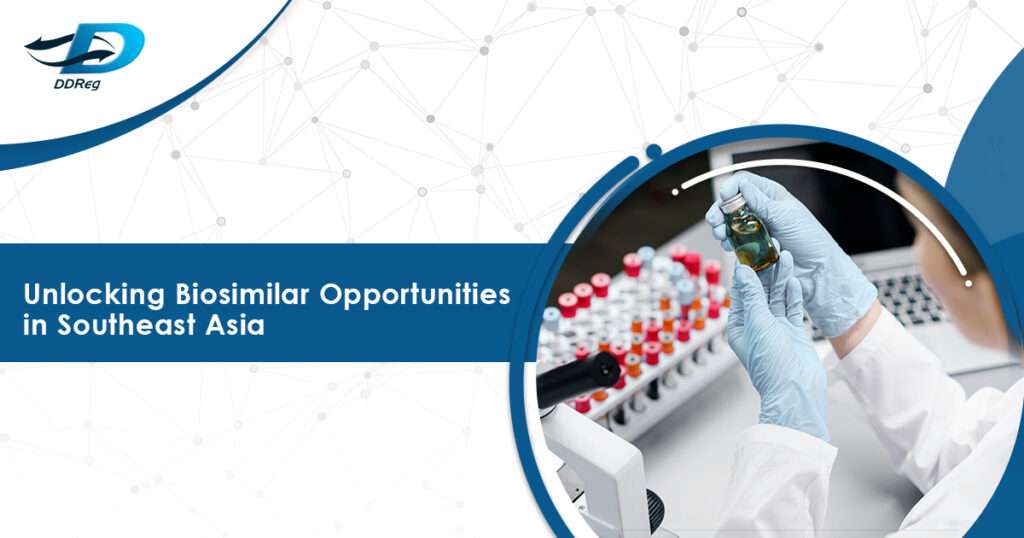
The biopharmaceutical industry is at a pivotal moment with the emergence of biosimilars—therapeutic products that mirror existing reference biologics in safety, quality, and efficacy. In Southeast Asia, a region characterized by its diverse healthcare systems and economic conditions, biosimilars in southeast asia present a monumental opportunity to enhance access to life-saving treatments. The successful integration of these products into national healthcare systems hinges on robust regulatory frameworks and regional harmonization. This is a critical factor in the growing South East Asia biopharmaceutical market.
Check Our : Biopharmaceutical Regulatory Consulting Firm
As regional regulatory frameworks evolve, it’s critical for stakeholders—biopharma companies, regulatory strategists, healthcare providers, and policymakers—to understand both the commonalities and unique aspects of biosimilar regulation across Southeast Asia. In this blog, we explore the current state of biosimilar regulations in key ASEAN markets, the challenges they pose, and the strategies needed to foster a sustainable biosimilar ecosystem.
Why Southeast Asia is a Key Player in the Global Biosimilar Strategy
With a collective population exceeding 650 million and a rising demand for biologic therapies in critical areas such as oncology, autoimmune disorders, and metabolic diseases, Southeast Asia is rapidly becoming a focal point for biosimilar adoption. As nations in the region increase their healthcare expenditures and move towards universal health coverage, biosimilars are recognized as a cost-effective solution to broaden patient access. The South East Asia biologics market is poised for significant growth, but regulatory fragmentation across the different countries presents considerable challenges for drug registration and market entry.
A Closer Look at the National Frameworks of Biosimilars in East & Southeast Asia
Singapore
- The Health Sciences Authority (HSA) follows stringent guidelines in line with global standards. It mandates that biosimilars be approved in reference jurisdictions (e.g., FDA, EMA, TGA) before local submission, treating unapproved biosimilars as new biological entities. This regulatory rigor ensures high quality but may lengthen time-to-market for developers without prior global approvals.
Malaysia
- The National Pharmaceutical Regulatory Agency (NPRA) of Malaysia was a pioneer in the ASEAN region, issuing its first biosimilar-specific guidelines in 2008. The NPRA aligns its evaluations with the ASEAN Common Technical Dossier (ACTD) and has approved more than 20 biosimilars to date.
Thailand
- Thailand’s FDA adopts a tailored regulatory approach, emphasizing product traceability and post-market surveillance. Unique identifiers like “NBS” help distinguish biosimilars from innovators, although interchangeability remains a grey area. The Thai market has seen slow but steady growth in biosimilar usage, particularly in oncology and rheumatology.
Indonesia, Philippines, and Vietnam
- These emerging markets are in the process of developing their biosimilar guidelines. While there is increasing clarity in approval timelines and dossier requirements, resource limitations can still affect the regulatory review process. The Indonesia biosimilars market, in particular, shows significant potential for growth as the regulatory framework matures.
The Challenge of Interchangeability and the Biosimilar Generic Drugs Market
Perhaps the most contentious issue in Southeast Asia’s biosimilar landscape is interchangeability. While many regulators allow biosimilars to be used similarly to originator biologics, clear guidance on automatic substitution by pharmacists is largely absent. This creates uncertainty for prescribers and slows down adoption, even when products are clinically equivalent.
Physician education, payer alignment, and real-world evidence will be crucial in enabling a policy shift toward more confident use of biosimilars across therapeutic areas. This is a challenge that also impacts the broader Southeast Asia generic drugs market.
Harmonization Efforts within ASEAN: A Work in Progress
Regional regulatory harmonization under the ASEAN Pharmaceutical Regulatory Framework (APRF) and ASEAN Common Technical Dossier (ACTD) offers a promising path forward. If implemented effectively, these initiatives can:
- Reduce duplication of regulatory reviews
- Enable mutual recognition of approvals
- Shorten biosimilar registration timelines
The long-term vision of an ASEAN Medicines Agency, akin to the European Medicines Agency (EMA), could revolutionize drug access in the region—but will require political will, investment, and infrastructure development.
Thought Leadership: Strategies for a Biosimilar-Ready Future
To successfully navigate this fragmented yet dynamic regulatory landscape, pharmaceutical companies should adopt a nuanced and strategic approach:
- Early Regulatory Engagement: Establishing local relationships and understanding national expectations is key to smooth submissions.
- Tailored Dossier Preparation: Leveraging ACTD templates while customizing data per country-specific requirements is a winning approach.
- Capacity Building Support: Contributing to regulatory education and training programs positions companies as long-term partners, not just market entrants.
- Real-World Data Generation: Supporting local pharmacovigilance services and outcomes research can strengthen the case for broader biosimilar adoption.
Conclusion
Biosimilars are poised to play a transformative role in the healthcare systems of Southeast Asia. Yet realizing their full potential requires more than scientific equivalence—it calls for regulatory foresight, collaborative harmonization, and shared commitment from stakeholders across the region.
As Southeast Asia advances toward greater integration and health equity, those who proactively understand and shape the biosimilar regulatory ecosystem will lead the next frontier in affordable biologics.
About DDReg
DDReg is a global regulatory solutions provider with deep expertise in navigating complex regulatory landscapes for biosimilars across emerging and mature markets, including Southeast Asia. Leveraging a blend of scientific insight, regional regulatory intelligence, and strategic partnerships, DDReg supports biopharmaceutical companies in developing and executing tailored biosimilar registration strategies.
Read more from DDReg experts here: Pharmacovigilance Approaches for Biosimilars Market Success
